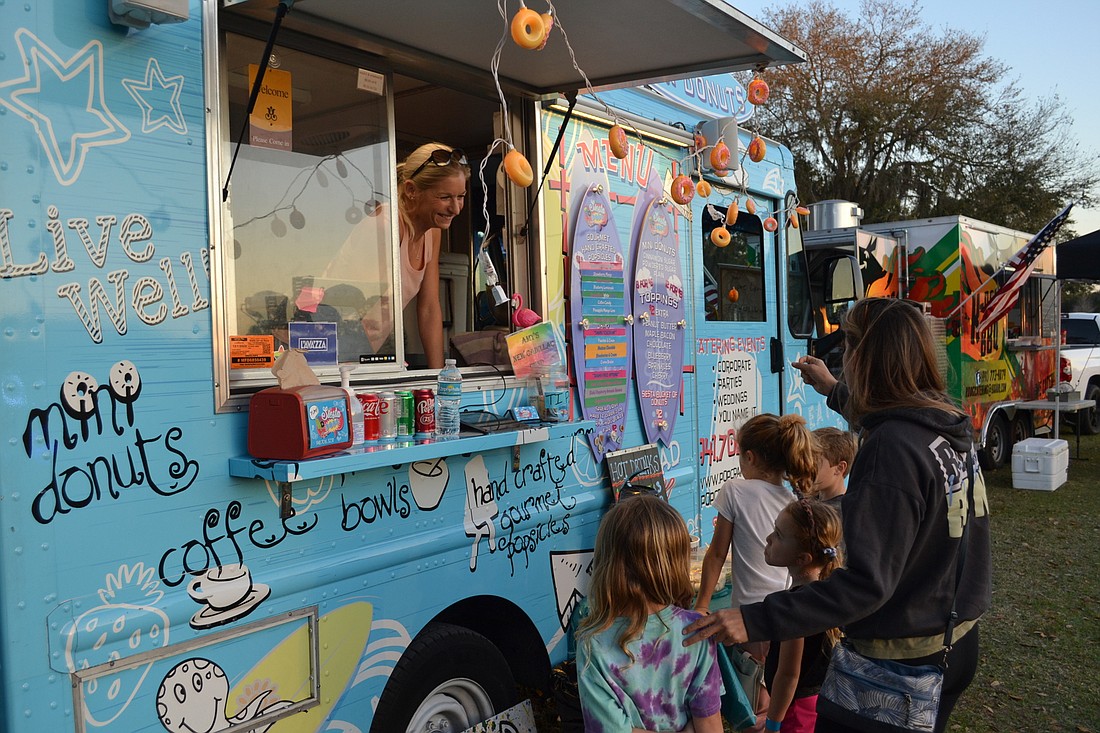- July 26, 2024
-
-
Loading

Loading

Manatee County residents are so hungry for food trucks that the county has proposed writing new regulations for them into the Land Development Code.
Because of increased inquiries over the past year, county staff members want to establish standards within unincorporated Manatee to meet the need for mobile vendors and mobile vending parks and also to ensure the food truck operations are safe and legal.
Food truck owners worry they'll be bogged down in paperwork and fees.
Currently, the county doesn’t issue licenses or permits to food trucks other than ice cream vendors that drive through neighborhoods. Instead, vendors are referred to the Florida Department of Business and Professional Regulations, Division of Hotels and Restaurants for an annual license.
If commissioners approve the measure on Dec. 7 at a public hearing, mobile vendors will also need to obtain temporary use permits from the county.
Three basic rules are laid out on the county’s website now, but they’re not written into the code. They say food vendors must be located on active commercial property with the approval of the property owner, that the food vendor can't be located in a county right-of-way, and that the food vendor can't provide seating.
The new measure will go further.
“It provides the county with language where everyone is on the same page because, right now, mobile vending is going on throughout the county, whether we know it or not,” Andrews said. “It’s basically to promote the public safety and welfare that we’re looking for to make sure that people are following what we have right now.”
If approved, trucks can’t be parked overnight for more than three days for temporary use and are subject to a fire safety inspection. Vendors will need to provide written approval from the property owner upon request.
From a vendor’s perspective, Stephanie Edwards and her business partner Chris Edwards said they can see both pros and cons of regulations being written into the Land Development Code.
“We have our permits. We do our (state) licensing every year. We have our background checks through the sheriff’s department. We have all that,” Chris Edwards said. “But there are people that are coming into neighborhoods and who knows if they have their insurance? If the people don’t know to ask for it, then they just assume the truck is good to go.”
Chris Edwards understands why the county would want to mitigate its liability, but Stephanie Edwards is weary as to what it will entail, including new fees by the county.
“Parks and Rec of Manatee County used to require nothing, then all of a sudden, they required permits to be filled out to ensure that we had a certificate of insurance. We would go to every measure that was necessary,” Stephanie Edwards said. “If they actually change the policy and add more stipulations, it’s going to be very hard for food trucks to survive in Manatee County.”
Edwards was mainly referring to the cost of permits, and Andrews couldn’t offer specific numbers because the cost of the permit depends on the use.
“For a mobile vending park (three or more vendors), it would be the cost of a site plan," Andrews said.
He also noted fees might be affected if connections need to be run for utilities.
"And then for the temporary use, they have to go through the temporary use permit process,” he said.
Cindy Unzicker, who operates a cookie business out of a van, also expressed concern over small businesses facing additional burdens.
"If you're out three or four nights a week and you have to get three or four permits, that would be so time consuming and labor intensive," she said, "And that's another expense that we're going to incur, so a lot of these food trucks are going to have to up their prices."
Regulations are laid out for accessory use, too. If a truck is an accessory to a commercial business, such as a food truck permanently parked at a brewery, the truck will need a signed lease.
While the county hasn’t dealt with mobile food businesses other than food trucks, the code would include “any motorized or non-motorized vehicle, trailer, kiosk, push cart, stand or other device, which goods, wares, merchandise or food are peddled, vended, sold, displayed and/or offered for sale or are given away.”